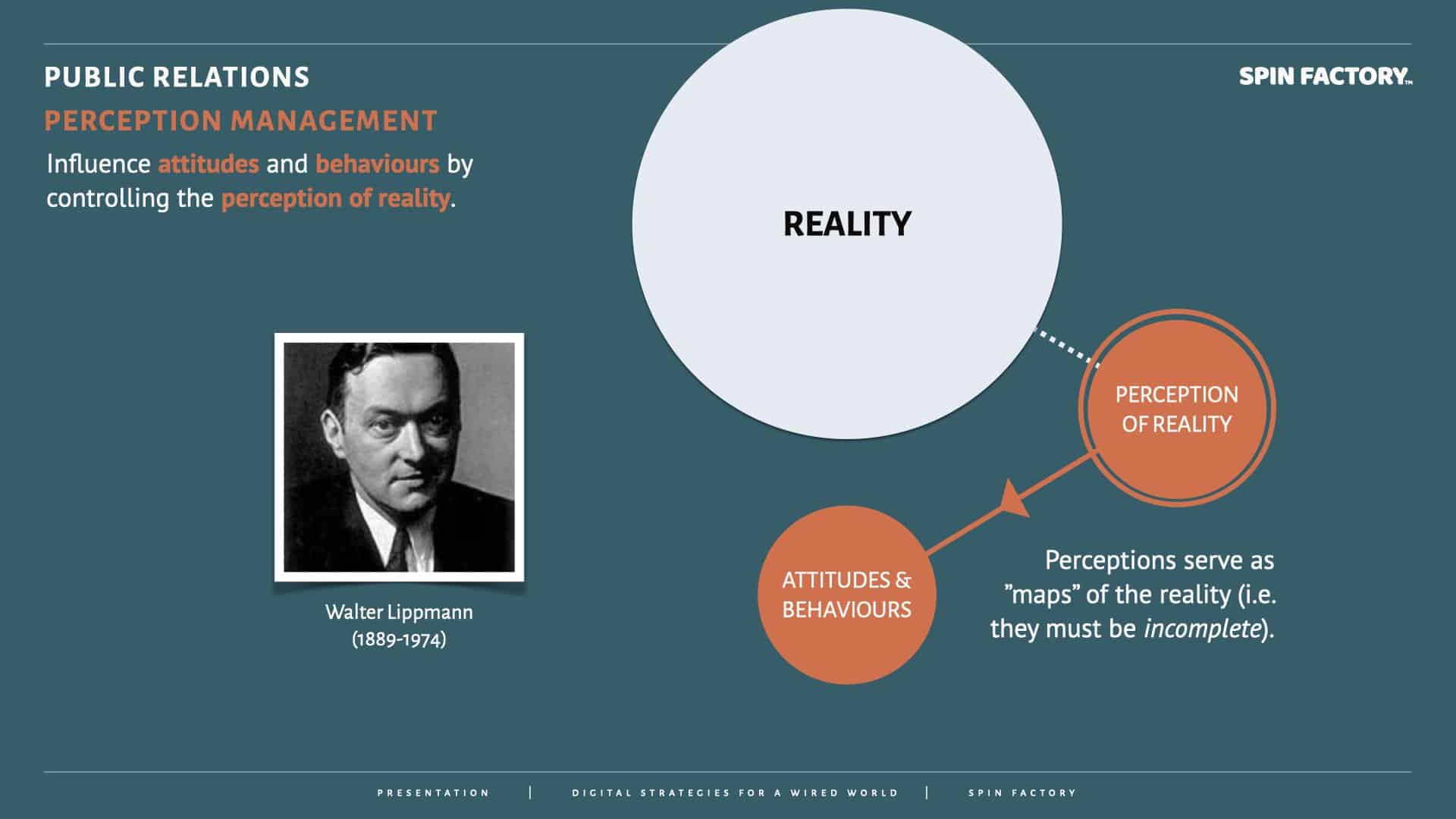Public opinion is beyond right or wrong.
“It’s unfair!”
In my role as a PR adviser, I hear those words often.
Many clients argue that they’re not asking for miracles. They only want the attention their organisation rightfully deserves.
I wish it were that simple. But public opinion isn’t fair.
Here goes:
Public Opinion and PR
“Public opinion is a compound of folly, weakness, prejudice, wrong feeling, right feeling, obstinacy, and newspaper paragraphs.”
— Robert Peel
As a PR adviser, I encounter people who argue about fairness. However, when it comes to public opinion, right or wrong is a secondary consideration.
How can this be?
Strictly speaking, right or wrong is determined in the court of law; PR is determined in the court of public opinion. The courthouse may hold the keys to our legal standings, but the court of public sentiment rules supreme over our reputations.
And it could never be any different:
But if everyone, through the works of magic, got the public opinion they think they deserve; there wouldn’t be enough mental bandwidth to go around.
The Scarcity of Attention
“Public opinion is a permeating influence, and it exacts obedience to itself; it requires us to drink other men’s thoughts, to speak other men’s words, to follow other men’s habits.”
— Walter Bagehot
You could be doing PR for a lousy product or service, and the lousiness would be a significant concern.
But you could also be doing PR for an exceptional product or service but facing PR strategies greater than yours.
Public opinion is an emotional economy driven by the scarcity of attention. Beyond the confines of right and wrong, the public’s gaze exerts its power, elevating or annihilating with unwavering force.
Believing you’re morally or intellectually superior isn’t necessarily a PR strength: a closed systems loop might obfuscate competitive development. Also, the public might interpret overt displays of righteousness as entitlement, narcissism, or megalomania.
The realm of public opinion is a jungle with laws to match the context.
The general public can be mistaken.
Consumers can make poor decisions.
Voters can elect the wrong politicians.
Right or wrong, the outcome is the outcome.
And the outcome is without mercy.
Perceptions Are Approximations
“It is not at all clear how much the media influences public opinion and how much public opinion influences the media.”
— Bruce Jackson
Absolute truths are difficult starting points:
If you scratch the surface, you’ll find that almost everything is contestable. A glass could be half empty (refill needed!) or still half full (no refill, please!).
Who’s perception should reign?
Walter Lippmann and Perception Management
In his seminal work Public Opinion (1922), Walter Lippmann laid the intellectual groundwork for the idea that perception and reality are not the same — a core principle of modern perception management. 1Lippmann, Walter. 1960. Public Opinion (1922). New York: Macmillan.
Lippmann argued that:
Lippmann’s ideas resonate deeply with perception management in public relations.
“We are all captives of the picture in our head — our belief that the world we have experienced is the world that really exists.”
— Walter Lippmann (1889 – 1974)
On Creating Pseudo-Environments
Lippmann coined the term “pseudo-environment,” which describes the filtered, biased, and often artificial version of reality presented by the media. He warned that influential elites could exploit this manufactured reality to manipulate public thought and behaviour.
Lippmann was sceptical about the public’s ability to discern reality from the pseudo-environment, which raises ethical concerns:
Perception management is not inherently sinister, but as Lippmann warned, it places immense power in the hands of those controlling the narrative.
In essence, perception management is the applied PR version of Lippmann’s media critique. It acknowledges that facts alone do not win public trust—priming, framing, storytelling, and emotional appeal do.
Learn more: Perception Management
The absolute seems to exist in the natural world, obeying the laws of physics, but the world of perceptions is fluttering shadows, dancing in the light of the fire against the cave wall.
Public opinion is not about right or wrong. It’s about who gets to decide how we see the world. And that’s why public relations is essential in building a society.

THANKS FOR READING.
Need PR help? Hire me here.

PR Resource: Amplification Hypothesis
The Amplification Hypothesis
It’s common to find that counterarguments strengthen existing beliefs instead of weakening them.
The harder you attack someone verbally, the more you convince them of their belief, not yours.
The phenomenon is known as the amplification hypothesis, where displaying certainty about an attitude when talking with another person increases and hardens that attitude.
“Across experiments, it is demonstrated that increasing attitude certainty strengthens attitudes (e.g., increases their resistance to persuasion) when attitudes are univalent but weakens attitudes (e.g., decreases their resistance to persuasion) when attitudes are ambivalent. These results are consistent with the amplification hypothesis.“
Source: Journal of Personality and Social Psychology 2Clarkson, J. J., Tormala, Z. L., & Rucker, D. D. (2008). A new look at the consequences of attitude certainty: The amplification hypothesis. Journal of Personality and Social Psychology, … Continue reading
How does the amplification hypothesis work?
In a threatening situation or emergency, we resort to the primal (fastest) part of the brain and survival instincts (fight, flight and freeze). 3Surviving the Storm: Understanding the Nature of Attacks held at Animal Care Expo, 2011 in Orlando, FL.
Establishing common ground and exhibiting empathy demonstrates a genuine understanding of their perspective, fostering trust and openness to your ideas. Conversely, a strategic mismatch of attitudes can serve as a powerful countermeasure if your objective is to deflect persuasive attempts.
Persuade
To persuade, align your attitude with the target. Otherwise, you will only act to create resistance.
Provoke
To put off a persuader, mismatch their attitudes. When they are logical, be emotional, and vice versa.
Learn more: The Amplification Hypothesis: How To Counter Extreme Positions
Annotations
| 1 | Lippmann, Walter. 1960. Public Opinion (1922). New York: Macmillan. |
|---|---|
| 2 | Clarkson, J. J., Tormala, Z. L., & Rucker, D. D. (2008). A new look at the consequences of attitude certainty: The amplification hypothesis. Journal of Personality and Social Psychology, 95(4), 810 – 825. https://doi.org/10.1037/a0013192 |
| 3 | Surviving the Storm: Understanding the Nature of Attacks held at Animal Care Expo, 2011 in Orlando, FL. |
| 4 | Silfwer, J. (2017, June 13). Conversion Theory — Disproportionate Minority Influence. Doctor Spin | The PR Blog. https://doctorspin.net/conversion-theory/ |
| 5 | Beck (1999): Homogenization, Dehumanization and Demonization. |
| 6 | Cognitive dissonance. (2023, November 20). In Wikipedia. https://en.wikipedia.org/wiki/Cognitive_dissonance |



